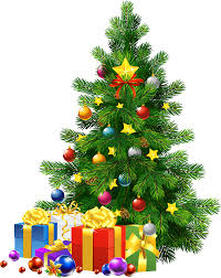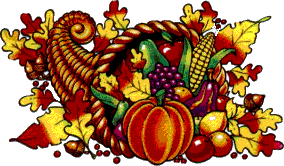|
We are receiving various questions and concerns about the current novel coronavirus (COVID-19) outbreak. At this time it does not appear to affect our pets, nor do pets act as carriers. Experts report that the main concern at the moment is human-to-human transmission. We continue to monitor appropriate official sources for any new information related to how this virus may affect pets. If you have any questions, you are welcome to call the office at 228-467-6719.
1 Comment
Interesting Fact: Dr. Mahler has been observing samples stool samples for worm checks since he came to Bay St Louis in 1981. The presence of pine pollen in a canine sample by the last week of January typically means that spring is on the way — this year he started seeing pine pollen by the middle of January! Who needs the groundhog when you’ve got Dr. Mahler!
Are you concerned that your dog sleeps too much or that they might be sleep-deprived? This link has helpful and accurate information to determine the best amount of sleep your specific pet needs.
www.tuck.com/how-much-dogs-sleep/ Although we have experienced some cool weather this winter, temperatures for the most part have been unusually mild, and fleas have not ever completely disappeared. To prevent a serious flea infestation later in the year, I suggest you start flea control by the middle of February in your yard and, if you have not already been doing so, on your animals. Early treatments DO help prevent serious problems later on. If you have questions about flea prevention strategies, you can come by the office and we will be glad to discuss these with you. Although we do not carry environmental products for your house and yard, we will be happy to share information about methods to manage these areas as well. "On animal” products are available and should be considered soon.
As the summer comes to a close and we begin to experience cooler temperatures, we expect an increase in the number of fleas in our environment. Remember to be prepared for these pests by treating your pet monthly with prescription flea control. Visit or call our office for options best suited for you and your pet!
In the past I have advocated hiding medications for pets in peanut butter for easier administration. Recently, however, I have become aware that some peanut butter products are now adding the artificial sweetener, xylitol, into their product. Xylitol, a common ingredient in chewing gums, is very toxic for dogs. Even small doses can result in death of the animal. If you use peanut butter at all for your dogs, please check the label for any added sweeteners such as xylitol. Blogging enthusiasts may be interested to know that Dr. Mahler was recently interviewed by Pat Saik for the “Good Neighbor” section of Ellis Anderson’s website entitled “The Fourth Ward Cleaver.” Photos were taken by Ellis Anderson. The article was published on September 1, 2015, and can be found by clicking on www.BSLfourthward.com. Saik’s article gives a warm-hearted, personal glimpse into Dr. Mahler’s love of family, as well as how he went into veterinary medicine. The blog is well-done and is a good read – guaranteed to satisfy the soul’s yearning to read wholesome, inspiring stories of personal and historic interest from colorful Bay St. Louis! Dr. Mahler would like to thank Ellis Anderson and Pat Saik for the honor of their having named him “A Good Neighbor.”
Dr. Mahler was out of the office on January 22-23 in order to attend 4 days of continuing education in Lafayette, Louisiana. The long weekend proved to be very productive, giving him the opportunity to glean new information from leaders in the field of veterinary medicine.
Dr. Mary Glaze, a colleague and friend of Dr. Mahler's from earlier days, spoke on ophthalmology. Her 4 1/2 hours of talks were both informative and entertaining. At 66 years old, she now maintains a referral practice in Houston, and is an active race car driver during her spare time! Dr. Todd Tams, a multi-hospital medical director (37 veterinary hospitals in the group) from California, also presented valuable sessions. His 8 1/2 hours of instruction included multiple aspects of gastro-intestinal medicine. Other lecturers included Dr. Gary Norsworthy, Dr. Greg Rich, Dr. Robert Hancock, and Dr. Cherie M. Pucheu-Haston, all authorities in their various fields. Refreshed and stimulated from spending time catching up on the latest developments in veterinary medicine, Dr. Mahler is back in the office, more equipped than ever to meet the health challenges and routine needs of his animal clients.  During the upcoming holidays, there are several potential pet health hazards to keep in mind. As during Thanksgiving, pets fed from the table (including scraps) are at risk for gastro-intestinal upsets, as well as other various ailments, such as pancreatitis, which can be serious or even fatal. Dogs are not accustomed to our spices and the levels of fat and exotic proteins in our celebratory foods. The best treatment is to restrain the temptation to allow the dogs "just one little treat". Some foods are particularly toxic, including onions, garlic, raisins, grapes, some nuts, some artificial sweeteners, and chocolate. Another danger that has recently come to my attention is raw pastry dough with a yeast ingredient. Non-food dangers would include tinsel, which can cause serious and sometimes fatal intestinal ailments. Ornaments can also be a source of injury. Cats seem to love to climb Christmas trees with the accompanying havoc. Drinking water which contains tree freshener chemicals from a Christmas tree base can be another source of problems. Celebratory beverages left within a pet’s reach can have disastrous results! Electronics can also post dangers to your pets. Extension cords for Christmas trees or outdoor decorations should be kept well out of reach as animals may chew them and experience electrocution. Light bulbs and other decorations should also be watch carefully as these may result in burns as curious pets investigate new items in their surroundings. A little care will allow you and your pets to have a joyous Christmas. I would hope that each of us remembers in a meaningful way the reason for our Christmas holidays.
|
AuthorWrite something about yourself. No need to be fancy, just an overview. Archives
March 2020
Categories |

 RSS Feed
RSS Feed
